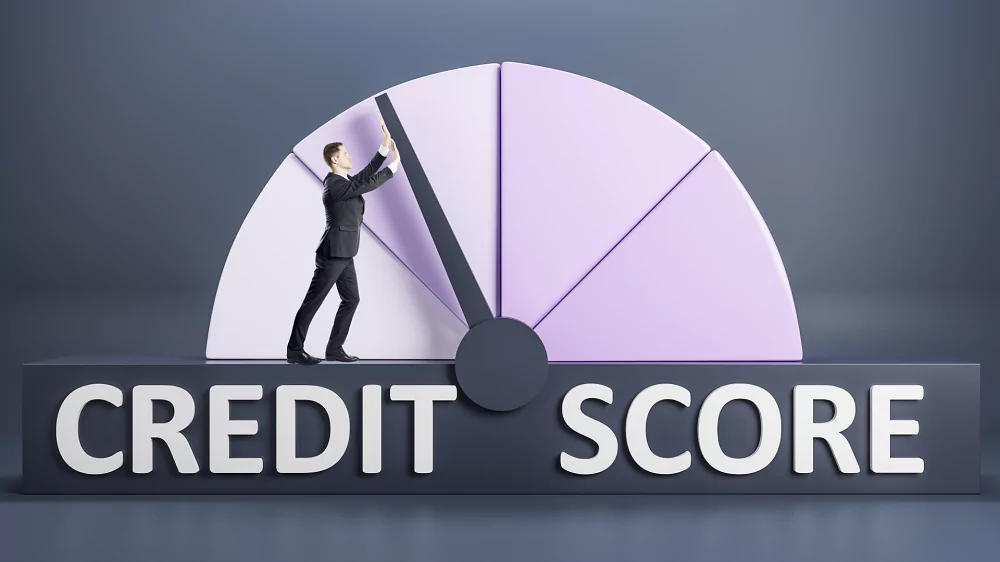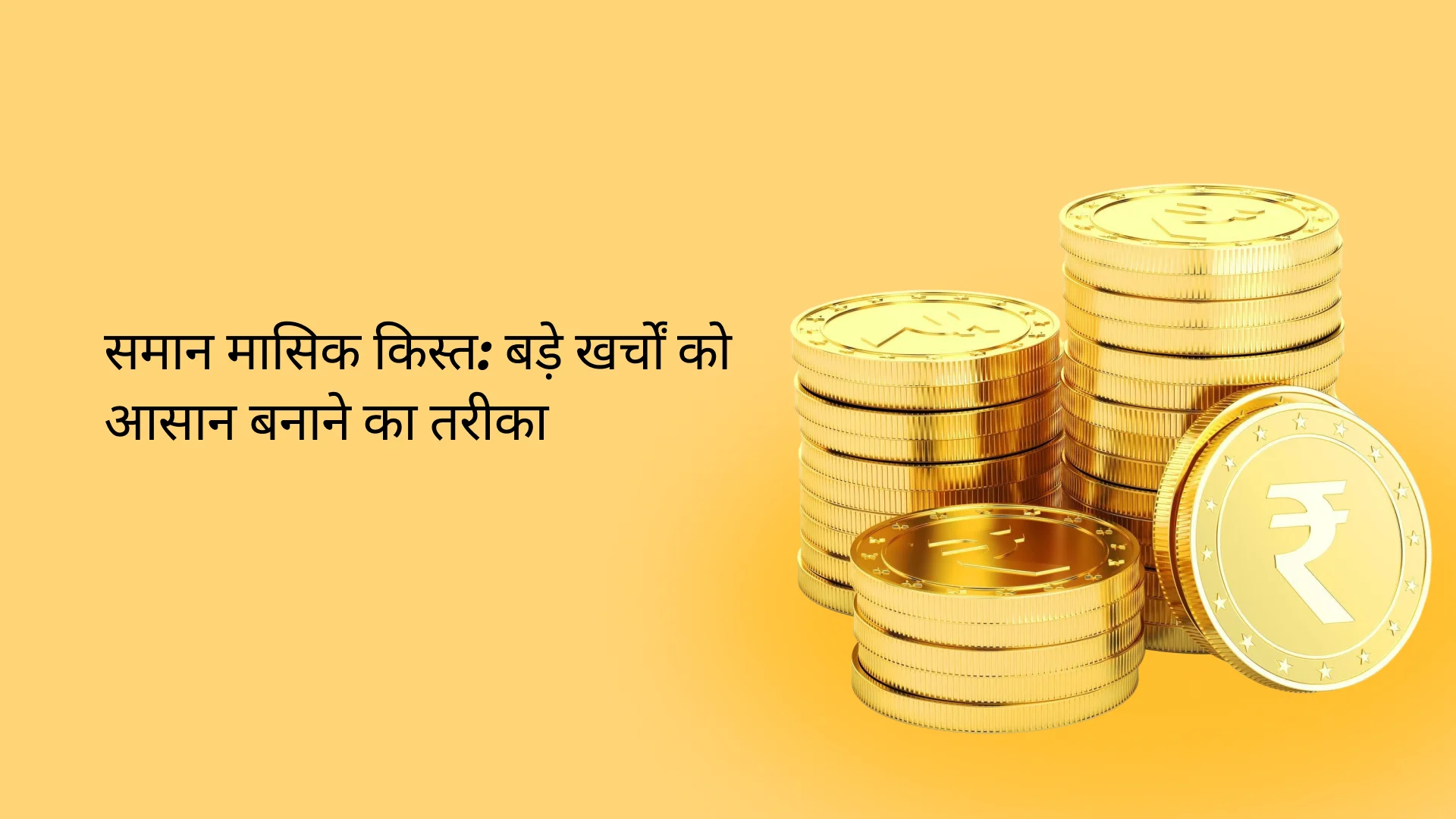How to Improve Cibil Score: 10 Smart Tips

Table of Contents
ToggleHow to Improve Cibil Score?
A good CIBIL score is a golden ticket to getting high-value loans at a low interest rate. This reflects your strong repayment behavior and is one of the first things that lenders assess before approving a personal loan online.
When you have a high CIBIL score, you also enjoy additional benefits such as faster loan approvals, quicker disbursals, and more flexible EMI options. This makes credit more accessible whenever you need it.
If you’re wondering how to raise your CIBIL score, there are several steps you can take, from paying EMIs on time to reducing outstanding debts. Continue reading this blog to learn more about how you can raise your CIBIL score and improve your loan eligibility.
What is Considered a Good Credit Score?
CIBIL score ranges between 300 to 900, where 300 is the lowest and 900 is the highest score. The higher your score, the better your chances of a loan approval.
If you want lower interest rates for personal loan, faster approvals, and quicker disbursals, then you should aim to improve CIBIL score to at least 750. Anything above 750 is considered a good credit score.
Credit Score Range
Look at this table to understand whether your current score is good or bad. You can work on your repayment behaviour to improve your CIBIL score.
| CIBIL Score Range | Rating |
| 300-500 | Poor |
| 550-650 | Average |
| 650-750 | Good |
| 750-900 | Excellent |
Why is Your Credit Score Important?
Your credit score is a key indicator of your overall credit health and determines how risky it is to give you credit.
When you apply for personal loans or credit cards, this is one of the first things that a lender will check.
Individuals with a high credit score are seen as ideal borrowers for lenders that can help them unlock the best terms of borrowing.
Factors that Negatively Affect Your Credit Score
CIBIL Score: You can unlock big ticket loans at the lowest interest rate by simply working on your CIBIL score. How to increase it? The first step is to understand the factors that can negatively affect it.
- Missing or defaulting on your EMIs.
- Making too many credit inquiries in a short period of time.
- Taking too much credit debt.
- Utilising more than 30% of your limit across credit cards.
Improve Your Cibil Score Immediately with these 10 Smart Tips
It takes effort to increase your credit score. But if you’re consistent, you can raise your CIBIL score to at least 750. This will improve your credit profile and get you the best deals on loan offers across all lenders.
Take these 8 measures to improve your repayment behavior and learn how to improve your CIBIL score:
1. Pay Bills on Time
2. Reduce Credit Utilization
3. Maintain a Healthy Credit Mix
4. Regularly Check Your Credit Report
5. Avoid Multiple Credit Inquiries
6. Maintain Older Credit Accounts
7. Settle Outstanding Debts
8. Try To Maintain A Healthy Mix of Credit
9. Don’t Take On Multiple Loans
10. Increase The Credit Limit
Pay Bills on Time
The consequences of missing your EMIs are much more than just paying penalty charges or receiving recovery calls.
Every time you miss your repayment, it is directly reported to the credit bureau which decreases your credit score. Hence, the first thing you should do is make sure you’re paying all your EMIs before or on due date.
An easy way to go about this is by keeping reminders and setting all your repayments on auto-debit. This way, you will never miss a payment and will be able to improve your CIBIL score.
Reduce Credit Utilization
Credit utilization is the percentage of your total credit limit that you have used. For example, if you hold a credit card with a ₹100000 limit, and you’ve spent ₹50000, then your credit utilization is 50%.
If you want to improve your CIBIL score, then make sure that your credit utilization doesn’t cross 30%. This is applicable to your credit cards.
When you use less than 30% of your credit limit, it indicates to the lender that you’re not a credit-hungry borrower. And can help you improve your credit worthiness.
Maintain a Healthy Credit Mix
If you want a good credit score, you need to build a good repayment history. And to build a good repayment history, it is important to maintain a healthy mix of credit.
Always take a combination of secured unsecured loans. More importantly, ensure you repay all your personal loans on time.
Doing this helps you build a strong credit profile and increases your credibility as a borrower. It shows that you have experience handling different kinds of credit products and can be trusted.
Regularly Check Your Credit Report
Checking your credit report helps you understand what your repayment history looks like. It can also help you find out if you have any outstanding loans that are reducing your credit score.
Most importantly, it can help you identify if any incorrect information is being reported to the bureau in your credit report.
Doing this is important because there’s a possibility that you could be doing everything from your end to maintain a good credit score, but your CIBIL score isn’t increasing because of incorrect reporting.
If you spot any such inconsistencies, get it rectified from the bureau immediately.
Avoid Multiple Credit Inquiries
Every time you apply for a personal loan or credit card, a hard inquiry is made to the bureau which is reflected in your credit report.
If there are multiple hard inquiries made in a very short period of time, it can have a negative impact on your CIBIL score. This can lead to lenders considering you as a high-risk borrower.
If you want to increase your credit score, then avoid applying for too many loans or credit cards in a very short span.
Maintain Older Credit Accounts
Maintaining a long and healthy repayment history is often seen as a good sign by lenders and could be key to increasing your CIBIL score.
If you have held a credit card for a long period of time, make sure you keep it active and pay all the EMIs on time.
Settle Outstanding Debts
The first step you should take to raise CIBIL score is to settle any of your outstanding repayments immediately.
Every time you miss your EMI, it is reported to the credit bureau which can significantly decrease your credit score.
If you cannot make a complete payment immediately, then at least start by paying a minimum due amount across all your credit cards. You can also talk to your lender to increase the tenure of your loan to make the EMIs more manageable.
Try To Maintain A Healthy Mix Of Credit
Secured loans and unsecured loans can impact your credit score. To impact positively, you are required to maintain a healthy mix of credit types. This shows healthy credit behaviour and minimises risk. Diversifying your portfolio, and repaying loans on time show lenders that you will manage different credit types effectively.
Don’t Take On Multiple Loans
Taking on multiple loans can negatively affect your CIBIL score and signal financial instability. To improve your CIBIL score, you may repay existing loans before applying for new loans. This will help you to keep a lower credit utilization ratio and maintain a good credit score.
Increase The Credit Limit
Increasing your credit limit helps in improving your credit utilisation ratio, which is an important aspect in the calculation of your CIBIL score. Requesting a higher credit limit while monitoring your spending can help you maintain a debt-to-income ratio and can be an effective method to boost your credit score.
Quick Facts on Credit Score
Understanding the basics of improving your credit score is important for financial health. The CIBIL score usually ranges from 300 to 900 considering above 750 to be a good score. If you are thinking about how to increase your CIBIL score, all you have to do is focus on timely repayments, maintain a low credit utilisation ratio, and have a good credit mix. These are essential for anyone seeking answers to “how to increase credit score from 600 to 750 ” effectively.
How Much Time Does It Take to Increase Your Credit Score?
Improving your credit score will take time and consistent effort. Significant changes often take months, depending on your profile and the payment history. Financial habits like paying EMIs and credit bills on time can help in reducing the debt, and maintain a low credit utilization ratio. These habits help in improving credit score. If your credit score is affected by severe defaults, it may take longer to rebuild.
It is essential to maintain timely EMI payments, diversify your credit profile, and avoid submitting multiple loan applications within a short period. These habits not only improve your creditworthiness but also ensure a healthier credit score over time, making it easier to secure loans in the future. Lenders rely on your credit score to evaluate your repayment capacity, so maintaining a good score is essential for easy loan approvals and better interest rates.
Additional Factors that can help Improve your Credit Score (Low Impact Factors)
Improving your credit score is a gradual process, and even small, low-impact factors can make a difference over time when combined with consistent financial discipline. Few more factors that can boost your credit score are as follows:
Opting for a Longer Repayment Term:
Choosing a longer repayment tenure for loans can help reduce your monthly EMI burden. Consistently meeting EMI deadlines positively impacts your credit score.
Exploring Ways to Boost Your Credit Limit:
Requesting a credit limit increase on your current credit card will help improve your credit utilization ratio, which is an important factor in evaluating your credit score. However, use the additional limit wisely to avoid overpaying.
Maintaining a Balanced Credit Portfolio:
A combination of secured (e.g., home loans) and unsecured loans (e.g., personal loans) displays a strong credit profile, which can boost your creditworthiness in the eyes of lenders. Balance is essential to long-term credit health.
Conclusion:
With these 8 steps, you now know how to increase CIBIL score from 600 to 750. When you make this change in your repayment behaviour, you can improve your credit profile. And you can get lower interest rates, higher loan amounts and quicker approvals on your future loans. Start improving your CIBIL score today so you can have instant access to cash every time you need it.
Also Read: How to Get Perfect 900 Credit/CIBIL Score?
Frequently Asked Questions
How to Increase CIBIL Score From 600 to 750?
You can increase CIBIL score from 600 to 750 by maintaining your credit utilization and making all your repayments on time.
How to Improve CIBIL Score Immediately?
You can improve your CIBIL score by maintaining a clean repayment history, monitoring your credit report regularly, and always paying your EMIs on time.
How do I Increase My Credit Score in 30 Days?
You can increase your credit score in 30 days by checking your credit report for any inconsistencies and incorrect reporting. Also, clear any outstanding debt immediately.
How often should I Check My CIBIL score?
Checking your CIBIL score regularly is a good practice that can help you keep your credit health in check. It is recommended to check your CIBIL score atleast once in a year. However, you can check it as many times as you want as soft inquiries have no impact on your score.
How Long Does It Take to See Improvements in my CIBIL Score After Implementing Changes?
After implementing changes, you can see an improvement in your CIBIL score after 4-12 months.
Can I Improve my CIBIL Score Without Taking on New Debt?
Yes, you can. You can improve your CIBIL score by simply closing any kind of ongoing debt.
What Should I do if I Spot Errors on My Credit Report Affecting My CIBIL Score?
If you spot errors on your credit report, make sure you report it to the credit bureau immediately.
Is There A Minimum Cibil Score Required To Qualify For Loans Or Credit Cards?
While different lenders have a different eligibility criteria to offer loans, a CIBIL score of more than 750 can help you get the best terms of borrowing.
Does Closing Old Credit Accounts Affect My Cibil Score?
Yes, closing old credit accounts can negatively affect your CIBIL score. This is because the lender won’t have an access to your credit information anymore.
YOU MAY ALSO LIKE

Search by posts
Recent post
-
 समान मासिक किस्त: आपकी वित्तीय खर्चों को आसान बनाने वाला तरीका
समान मासिक किस्त: आपकी वित्तीय खर्चों को आसान बनाने वाला तरीका
-
 Apply for 50000 Rupees Loan Urgently: Get Disbursed in Few Minutes
Apply for 50000 Rupees Loan Urgently: Get Disbursed in Few Minutes
-
 How to get Instant Loan on Aadhaar Card without Salary Slip
How to get Instant Loan on Aadhaar Card without Salary Slip
-
 How to Apply for a Rs. 25,000 Loan on an Aadhaar Card?
How to Apply for a Rs. 25,000 Loan on an Aadhaar Card?
-
 How to Get ₹30,000 loan without income proof: Quick Ways
How to Get ₹30,000 loan without income proof: Quick Ways
Categories
- Blog (6)
- Credit History (36)
- Credit Line (7)
- Festive (4)
- Finance (15)
- Mutual Fund (19)
- Personal Loan (275)
- Tax (8)
- Zype (4)













